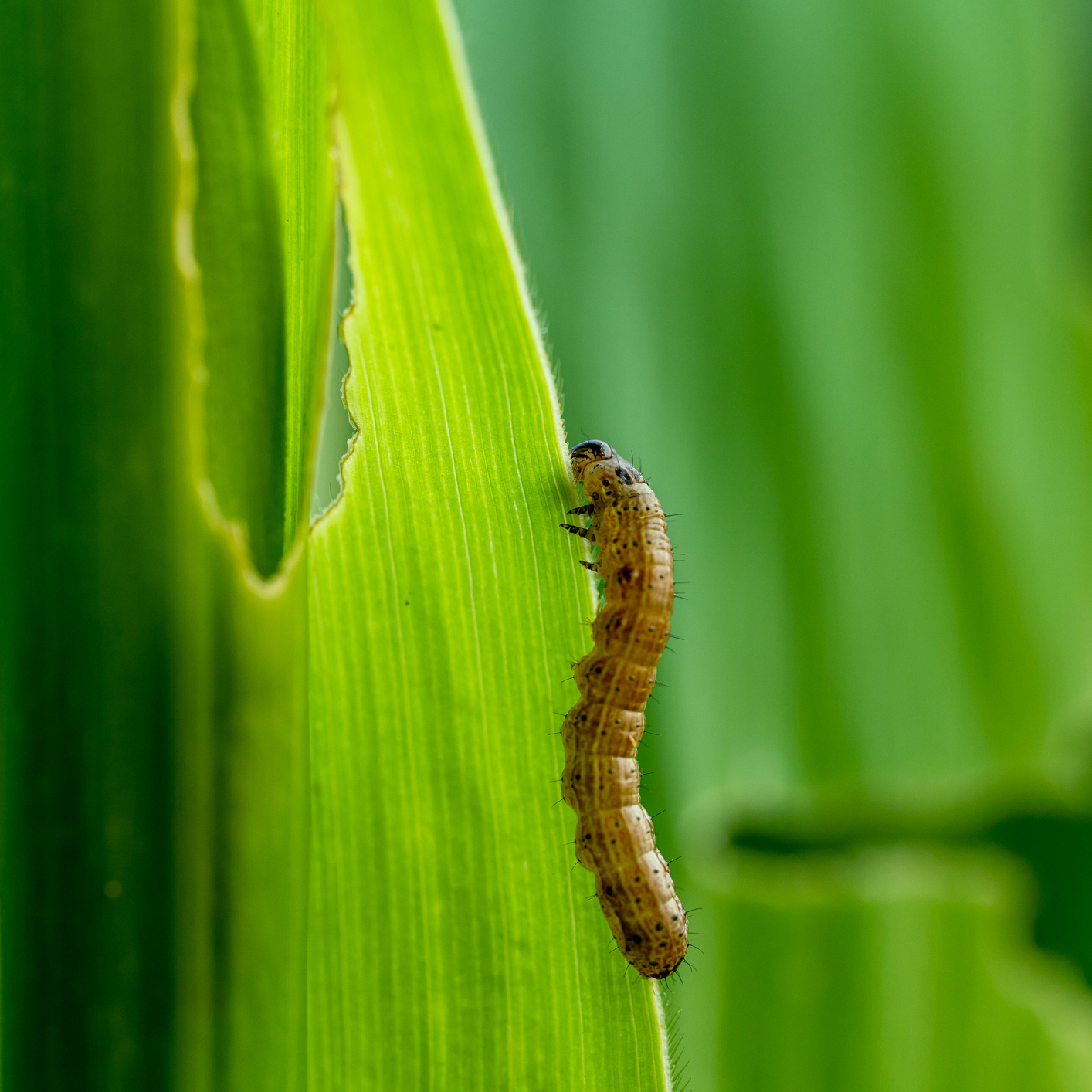Queensland, Australia and Boston, Massachusetts, USA
October 6, 2022

Dr Julia Bally and Professor Peter Waterhouse, QUT Centre for Agriculture and the Bioeconomy
Researchers from Boston’s GreenLight Biosciences and QUT have announced an agreement to develop a solution to fall armyworm, which causes US$2 billion in annual global crop loss.
- GreenLight Biosciences and QUT partner to create a solution for fall armyworm
- Fall armyworm is one of the most destructive insect pests on the planet, causing more than US$2 billion in annual crop loss worldwide
- The Australian Government has been searching for a more environmentally-friendly solution to fall armyworm and is supporting the partnership with a $408,531 grant

The fall armyworm on maize leaves.
The partnership includes more than $400,000 in an Australian government grant to QUT from the Australian Research Council. It brings together the teams of two preeminent researchers, Dr Julia Bally and Professor Peter Waterhouse (pictured above) from the QUT Centre for Agriculture and the Bioeconomy, and GreenLight’s Plant Health research and development team.
The partnership aims to develop a solution for fall armyworm, a pest of national priority in Australia. It is also a point of emphasis that the project delivers environmentally-friendly crop protection tools against fall armyworm.
GreenLight’s plant health division is working on producing RNA-based solutions for a variety of fungi and insects that cause massive food loss and crop damage annually. In lab tests and field trials, GreenLight’s RNA-based solutions leave low or no residues.
Dr Bally said previous collaboration on fall armyworm with Greenlight had been important to securing the grant from the Australian Research Council this year.
"We are excited to work with Greenlight Biosciences on this solution to armyworm," she said.
"We believe furthering our partnership will generate comprehensive new technologies to fight against one of the most damaging global crop pests and greatly improve Australian agritech capacity and strengthen international collaborations.”
 Sorghum is one of the crop varieties that has recently been invaded by fall armyworm in Australia.
Sorghum is one of the crop varieties that has recently been invaded by fall armyworm in Australia.
GreenLight’s Vice President of Plant Health R&D Ron Flannagan said: “Fall armyworm has recently invaded Australia and devastates many crops, including sorghum and cotton. Our RNA platform allows us to develop solutions faster and more efficiently than was previously possible. So we are delighted to partner with QUT to accelerate our work targeting the fall armyworm with a sustainable solution.”
The project will begin with lab studies and advance to greenhouse and field trials.
“We believe this research will provide significant benefits, such as added security for Australia’s most important agricultural crops and regions and global food production," Dr Bally said.
About GreenLight Biosciences
GreenLight Biosciences aims to address some of the world’s biggest problems by delivering on the full potential of RNA for human health and agriculture. Our RNA platform allows us to research, design, and manufacture for human, animal, and plant health. In human health, this includes messenger RNA vaccines and therapeutics. In agriculture, this includes RNA to protect honeybees and a range of crops. The company’s platform is protected by numerous patents. GreenLight’s human health product candidates are in the pre-clinical stage, and its product candidates for the agriculture market are in the early stages of development or regulatory review. GreenLight is a public benefit corporation that trades under the ticker GRNA on Nasdaq. For more information, visit https://www.greenlightbiosciences.com/